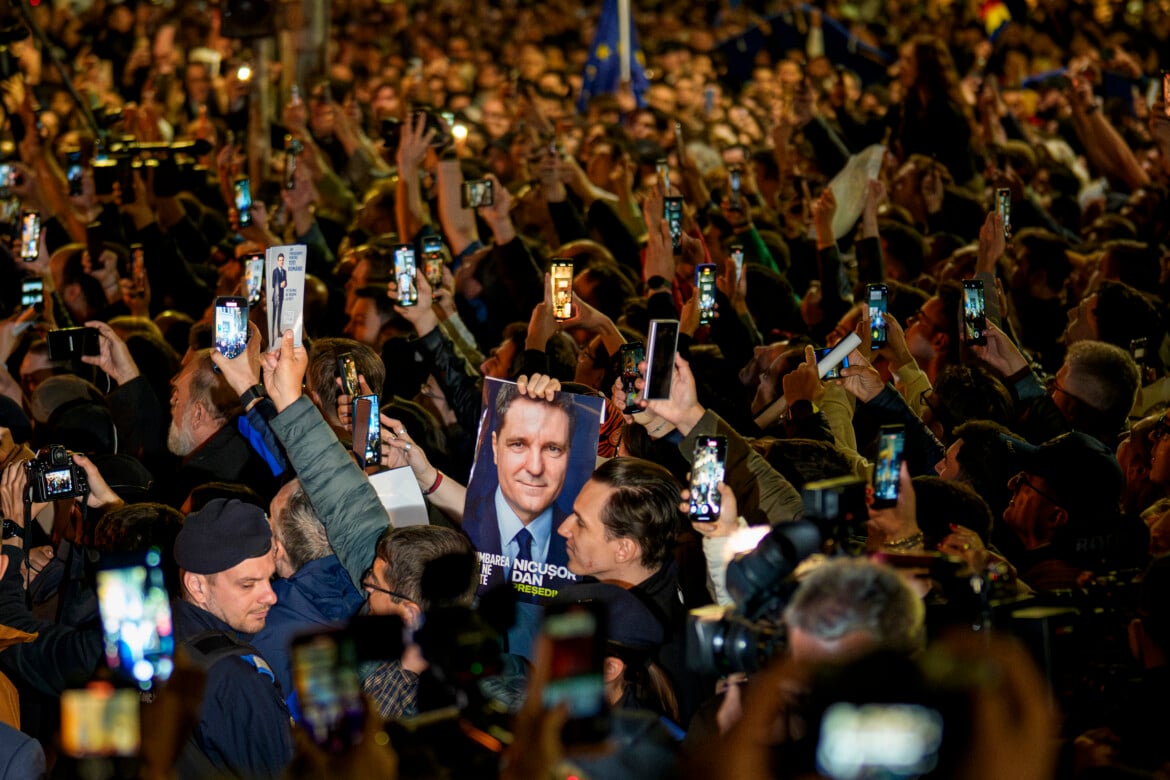Analysis
Romanians rejected the far right for a pro-Union mathematician – now the hard part
The message from the polls was clear: a large share of Romanian society still believes in democratic values, pluralism and a firm pro-European stance, despite populist pressures.

In a Europe unsettled by sovereignist winds and geopolitical tensions, Romania has chosen a different path, in the person of Nicușor Dan – a mathematician, former civic activist and mayor of the capital – who was elected President with 53.6% of the vote in the presidential runoff. He defeated the far-right candidate George Simion, leader of the Alliance for the Union of Romanians (AUR), who got 46.4%.
With more than 11.5 million ballots cast and turnout close to 65 percent, Sunday’s election was one of the most significant political moments in recent years, and not only for Romania.
Dan’s victory was welcomed in the main European capitals, where many had feared a further far-right breakthrough inside the Union. The message from the polls was clear: a large share of Romanian society still believes in democratic values, pluralism and a firm pro-European stance, despite populist pressures.
Dan cuts an unusual figure for a Romanian politician: not a traditional party figure but a technocrat with a strong civic and institutional background. His success can be read as a response to growing political polarization and as an attempt to rebuild the bond between institutions and citizens.
Despite his victory, however, the new president inherits a deeply divided country. Simion drew very strong support from the most vulnerable segments of the population, particularly in rural areas and among citizens abroad. Among the diaspora – so often neglected by national politics – the AUR candidate took more than 55 percent, underscoring a widening gap between those living outside the country and domestic institutions.
Social discontent always has a cause. Romania is going through difficult economic times: inflation remains high, growth has slowed, and key sectors such as agriculture and energy are showing signs of crisis. Youth unemployment is rising again, while wages are stagnant. The outgoing government tried to curb discontent with tax relief and incentives, but many citizens have seen no concrete improvement in daily life.
The domestic situation will be anything but easy. Nicușor Dan will have to work with a fragmented parliament in which no political force commands a clear majority. His role will thus include that of mediator among very different parties, in a climate often tense and lacking mutual trust. He must also deal with an administrative machine still plagued by inefficiency and cronyism.
Among his priorities are strengthening the judiciary, fighting corruption, reforming public administration and ensuring greater transparency in the use of European funds. Just as important will be relations with the regions and the management of social tensions, especially in such an unstable economic period.
For all the post-election enthusiasm, there is an awareness that Dan’s victory is only the beginning. His ability to push a concrete agenda through will be tested from the start.
Without stable support in Parliament and with a significant part of the electorate still distrustful, the new president will have to earn step by step, by concrete action, the legitimacy that the vote has symbolically conferred on him.
Romania has opted for European and democratic continuity. Now it will need pragmatism, courage and, above all, tangible results.
Originally published at https://ilmanifesto.it/la-scommessa-delleuropeista-nicusor-dan-in-una-romania-divisa on 2025-05-20
